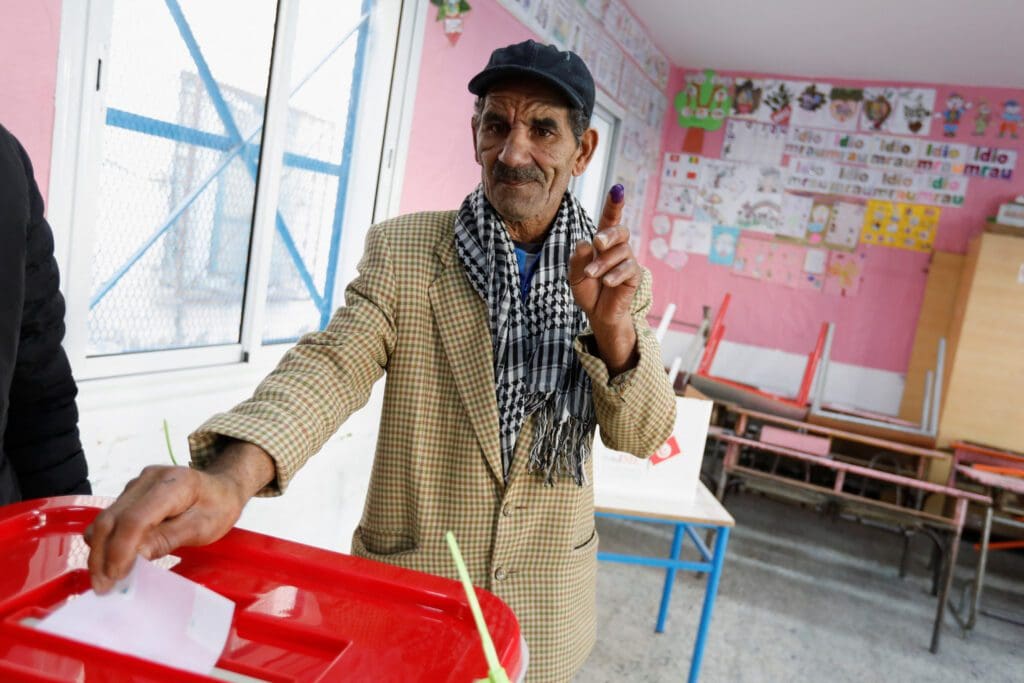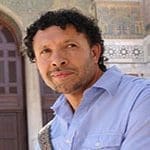Just a few years ago, Tunisia was a beacon of political renewal in the Arab world, having both sparked the 2011 Arab Spring revolutions and emerged from them with the region’s only dictatorship-turned-democracy. Yet today, Tunisia is straining under the weight of a broken political system, a beleaguered economy and a disaffected public, including thousands of youths willing to risk their lives at sea in pursuit of greener pastures across the Mediterranean.
Fixing the political system and restoring Tunisians’ faith in their leaders and institutions will be essential to tackling the country’s many other problems.
Public disillusionment with politics was on stark display in recent elections to a parliament stripped of its powers, showing that Tunisians may be giving up on their nascent democratic project. Just 11.2 percent of voters took part in a first-round ballot held in December, with a run-off on January 29 bringing out a similar figure.
Even if one takes the official figures at face value, they place Tunisia’s turnout at the lowest in the world—below that of record holders like Haiti in 2015 (17.8 percent) and Afghanistan in 2019 (19 percent). Regional comparisons like Algeria, Egypt, and Jordan, which also feature low on world rankings for voter turnout, have all recorded turnout in recent polls that double Tunisia’s latest rate.
Such results raise a serious question: Why are Tunisians abstaining from participatory politics?
Critics of President Kais Saied, who disbanded the parliament in July 2021 and pushed through a new constitution last year granting himself almost unchecked powers, attribute the low turnout to the unpopularity of his political program. His constitutional referendum last summer also failed to secure more than 30 percent turnout. Opposition parties have urged Tunisians to boycott polls in order to starve Saied’s agenda of democratic legitimacy.
Before Saied’s power grab, supposedly democratic politics in Tunis had become an exercise in sharing seats among elites and their political parties. The upshot was that lawmakers failed to deliver equal opportunities, jobs, and social justice. This left Tunisians in a state of democratic fatigue or even burnout.
It could be argued that the election boycott campaign, perhaps the only thing uniting the opposition against Saied, succeeded. Various anti-Saied opposition forces, including the recently-formed Salvation Front, like to claim credit for the low voter turnout—although there is no evidence that they were responsible, and their own lack of a popular base appears to suggest otherwise.
For example, one key opposition figure in the Salvation Front, Nejib Chebbi, has a low track record of electoral success, despite remaining a prominent voice of the democratic camp. After his Al-Jumhuri (Republican) coalition won limited seats in the 2014 election, he formed the Democratic Movement party, which failed to draw support or obtain seats in the 2019 polls. In 2022, Chebbi established the National Salvation Front, an opposition coalition that includes the Islamist-inspired Ennahda party, to oppose Saied’s usurpation of political power, but its influence over public opinion is difficult to quantify.
Still, the low voter turnout does appear to reflect a lack of public support for, or interest in, the political system created by Saied since he dissolved parliament on July 25, 2021. He has since remapped the entire system, ramming through a new constitution in July 2022 with feeble participation of just over 30 percent.
Seeking to address the situation, Saied’s opponents have put forward a number of proposals for a national dialogue, most recently one led by the powerful UGTT (French: Union Générale Tunisienne du Travail) trade union movement. In principle, dialogue is always a positive thing, but it must also have clear goals and involve the right actors. President Saied thus far has rejected all dialogue initiatives apart from his own last year, with a hand-picked list of participants, some of whom boycotted. In light of this, and the massive abstention by voters uninterested in his remapping of the country’s political system, he may soon find he has no choice but to engage in dialogue.
Saied faces difficulties on many fronts, not least the long-debated prospect of a bailout by international financial lenders. No deal has yet been agreed upon with the International Monetary Fund, and as negotiations drag on, Tunisia’s financial position is continuing to deteriorate. On January 27, Moody’s downgraded the country’s sovereign debt to CAA2. Hundreds of thousands live in poverty, unemployment is soaring and basic goods from milk to cooking oil are disappearing from the shelves—a situation aggravated by the COVID-19 pandemic and Russia-Ukraine war.
A dialogue to resolve Tunisia’s woes must be comprehensive and address the real issues at stake: livelihoods, dignity, freedom, and the restoration of the democratic process. This will require the participation of a wide range of voices. Dialogue must not be turned into a vehicle used by political forces to secure a role in politics or serve their narrow interests, nor should it be turned into a tug-of-war between different actors such as the president and the UGTT.
By boycotting the latest elections en masse, Tunisian voters have rejected the status quo. The vast majority who stayed away demand attention. They choose abstention over participation in paternalistic, divisive politics. Those in power must ask hard questions about why abstention is becoming the norm in Tunisia. If it is due to diminishing public trust in politics generally, how can this trust be restored? If it is a rejection of the authoritarian politics stemming from Saied’s power grab, how can the country find a way forward?
The opinions expressed in this article are those of the author and do not necessarily reflect the views of the Middle East Council on Global Affairs.


